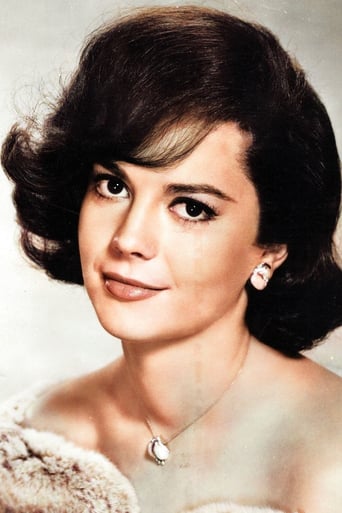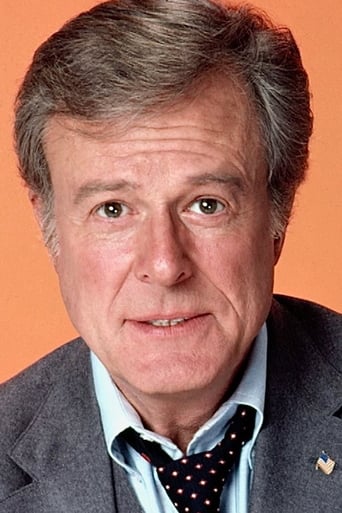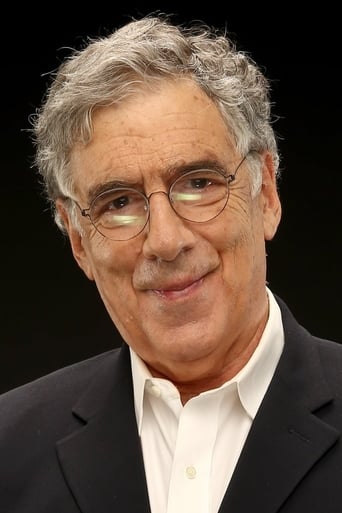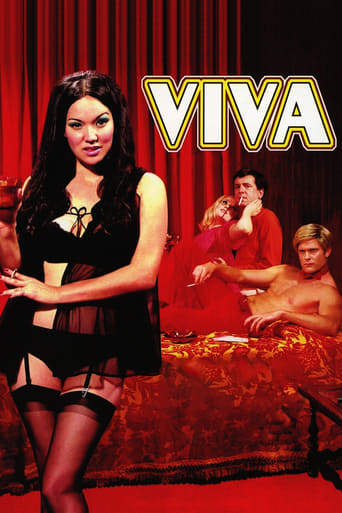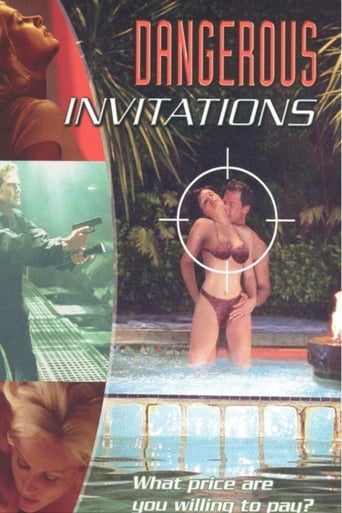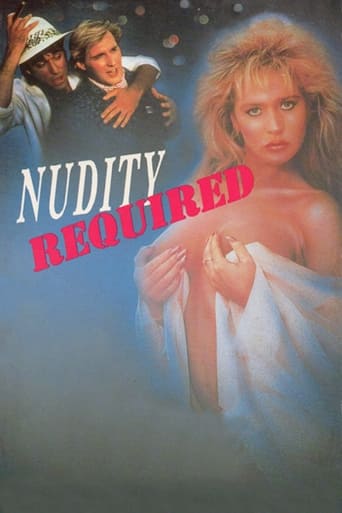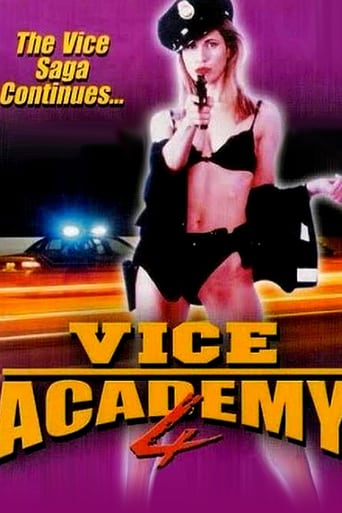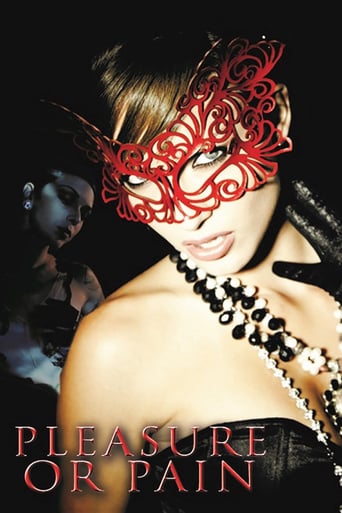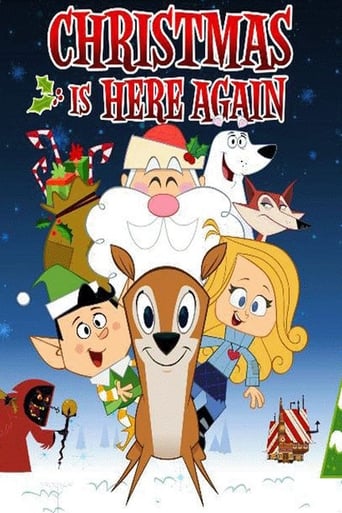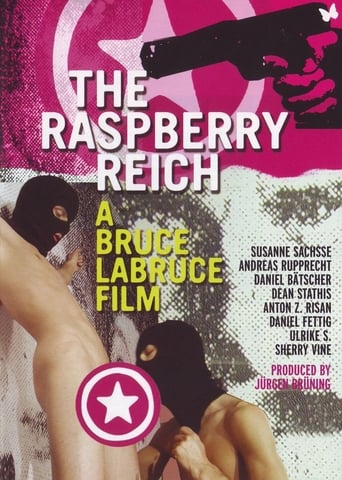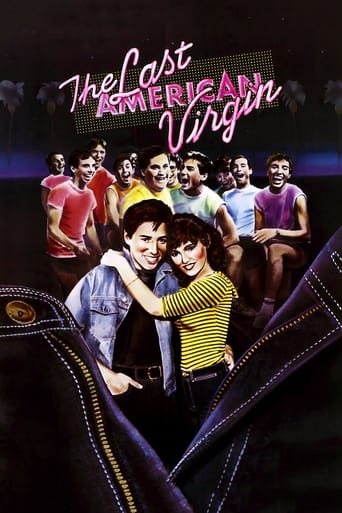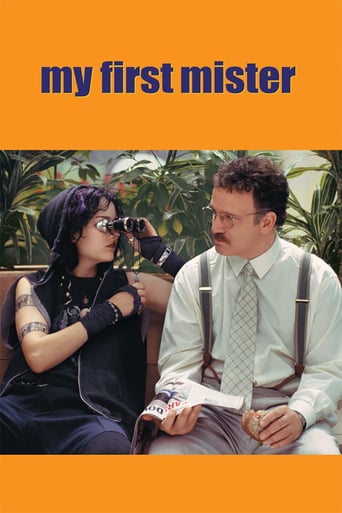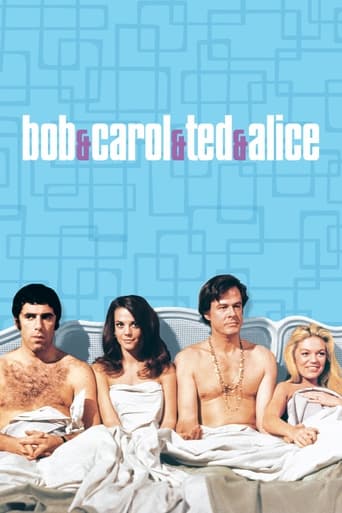
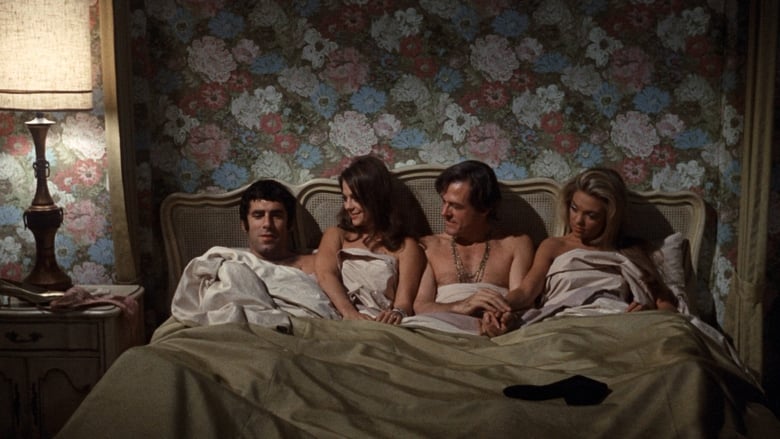
Bob & Carol & Ted & Alice (1969)
After returning to Los Angeles from a group therapy session, documentary filmmaker Bob Sanders and his wife, Carol, find themselves becoming vigilante couples counselors, offering unsolicited advice to their best friends, Ted and Alice Henderson. Not wanting to be rude, the Hendersons play along, but some latent sexual tension among the four soon comes bubbling to the surface, and long-buried desires don't stay buried for long.
Watch Trailer
Cast
Similar titles
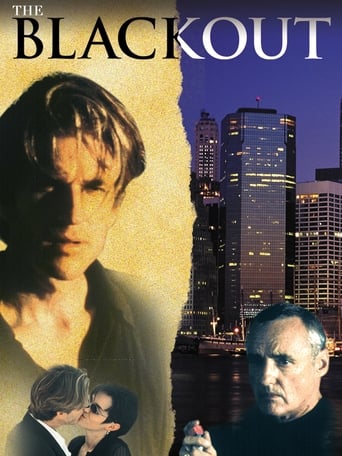
Reviews
Best movie of this year hands down!
Excellent but underrated film
A terrific literary drama and character piece that shows how the process of creating art can be seen differently by those doing it and those looking at it from the outside.
The joyful confection is coated in a sparkly gloss, bright enough to gleam from the darkest, most cynical corners.
Paul Mazursky's directorial debut ranks with his best. Though B&C&T&A lacks atmosphere and could use tighter editing, it remains one of the 60s top comedies and one of that decades best films. Far better than the insipid comedies Hollywood churned out with Jack Lemon, Peter Sellars, Tony Curtis and Doris Day. In some respects a period piece, B&C&T&A is still funny and pointed today. The 4 leads are believable as couples and friends and Wood, Cannon, Gould and Culp have rarely been better. Gould and Cannon make their long scenes really work and Cannon is a standout especially in a scene with her analyst. Wood is far more nuanced and relaxed than she was in her previous comedies: Penelope, The Great Race, Sex and the Single Girl. The use of improvisation and long uninterrupted scenes works as well here as in any Cassavettes' film and the final scene is inspired by Fellini.
Paul Mazursky's Bob & Carol & Ted & Alice is a devilishly funny but wickedly thoughtful and contemplative film that shows a time period in America when what happened in the bedroom between a man and a woman didn't stay in the bedroom between a man and a woman. The newer generation taught us to be more open and thoughtful with our sexual desires, expressing them freely, and not restricting them as if sex was an unnatural thing. Connecting this to film, as I so often do, just look at how Americans have quietly been told to fear sex. A violent wartime epic can still achieve a PG-13 rating, while a three second shot of a vagina will stamp you film with the "kiss of death" NC-17 rating. How have our private parts been so private we've resorted to embracing the unnatural and the cruel and fearing the natural and the serene? Bob & Carol & Ted & Alice was made in 1969, right on the teetering edge of the hippie movement and during the "free love" movement, where marriage was seen as a restraint on ones well-being and pocketbook and the state had no business in dealing with it. The film, judging by its premise, deals with the concept of swinging or "wife-swapping," when it in turn, deals with the ethics and moral values that get in the way of doing such acts. We explore the lives of two couples, ostensibly similar on the surface, but royally different when examined. The couples are Bob and Carol Sanders (Robert Culp and Natalie Wood), a trendier, more liberal couple, while Ted and Alice Henderson (Elliott Gould and Dyan Cannon) are your more straight-shooting, square couple, highly indicative of the parents of sexually promiscuous teens in the 1960's and 1970's trying to understand their teenage sons and daughters.Bob and Carol spend a weekend at a couples retreat, one of those camps that allows for emotional honesty between married people to flow and allow for deeper feelings and emotions to penetrate one another. Because of the impact this has had on them, Bob reveals to Carol that while working on a film set he slept with another woman in an act he called "purely physical" and not emotional. Carol accepts this about as well as a wife could, believing Bob, admiring his honesty, and carrying on her own way, even casually revealing it to their best friends Ted and Alice, who are appalled at the thought. Alice finds herself especially sick with the idea that Bob could do such a thing and then reveal it to Carol who isn't the least bit upset with him. Damn western hippies, I tell you.This prompts Ted and Alice to have a lengthy nighttime conversation about the affair, the impact it could have on their friends in the long term, and if they themselves are sexually promiscuous at all. This is one of the many great talks in the film, focusing sharply on human emotion and feelings, two things often traded in American cinema for punchlines and vulgarity. In this conversation, Mazursky leaves the camera turned on the couple for a long period of time, listening to the conversation, hearing what both has to say, and leaving us with a lot to contemplate by the end of talk, whether we're single or married.These kinds of dialogs that go on for a while and leave the view in a self-contemplative state are fiercely common in Bob & Carol & Ted & Alice, including the nudging idea of "is it possible for a couple to be married for a lifetime and not have sexual feelings for another women, be them expressed or regressed?" Throughout his career, Mazursky has been interested in character, marriages, the arguments and debates that a husband and wife have, but most importantly, relationships. When I say "relationships," I don't mean those confined to a marital or dating relationship but various relationships people can find themselves in.The actors here couldn't have been more perfect for their roles. We have the unbelievably gorgeous and beautifully mannered Natalie Wood in a role that requires impeccable conviction and plausibility, given the tender nature, Robert Culp in an equally uncomfortable but rewarding role, with Elliott Gould and Dyan Cannon assuming the role of the uppity parents trying to comprehend this "sexual openness" these couples speak of. All of these actors, equipped with Mazursky's and co-writer Larry Tucker's biting dialog, help illustrate the generation gap where sex is a revered act that should be kept on the down-low or sex is an act embraced and discussed.With Bob & Carol & Ted & Alice, Mazursky and Tucker ask the biggest questions I've seen them ask yet. Is free love something to embrace or condemn? Is swinging, wife-swapping, or an orgy lethal to a marriage and its long-term prosperity in health? Is it healthy in itself to casually dismiss an affair or harp on it and risk losing the one you love? To show that these questions are still very much alive and the idea of sexual openness is still one discussed today, the modern-day film equivalent to Bob & Carol & Ted & Alice is Joe Swanberg's Drinking Buddies, a film that clearly is influenced by Mazursky's film right down to its poster. Both films explore the aforementioned ideas, only one takes a much younger cast and puts them to use while the other takes couples grappling with an older age and simply trying to fit in. Both films are two of my favorite romantic comedies to boot, as well.
I called "Bob & Carol & Ted & Alice" a vague film because there are very few certainties in the film. If you want a movie with a clear message and ending, then this film is NOT for you. I really think what you think of the movie is entirely dependent on the viewer and how they interpret what they see. I see it's listed as a comedy, but I could easily see someone thinking it's a drama. I could also see it as an endorsement of sexual freedom--or a film about the importance of fidelity in a marriage! Bob and Carol go to an encounter weekend--the sort of pseudo-therapy type group that was gaining popularity in the late 1960s. During the opening credits as they arrive there, you see lots of nudity--though the rest of the film is amazingly skin-free. There, they learn to let go of their inhibitions and be completely honest with each other--or at least try to be. The result is that they become closer as a couple--which could lead to serious complications when Bob tells Carol about an affair he recently had. But, using the model of their encounter group, Carol isn't upset but happy that they can be this honest. Later, when their best friends Ted and Alice hear of this, it throws them for a spin--how can a couple be THIS honest and still remain a couple?! Later, this new-found freedom leads to a four-some--a four-some that is really much more tease than please. Following this, the film ends in a manner that is just plain bizarre.I just don't know what to think of this film. While the acting pretty good and the film quite arousing at times, it also will no doubt be frustrating because just when you think the fireworks are going to occur, the film ends! Sexy but unsatisfying.
I watched this film again having first seen it on late night TV in the mid 1980s when I was twenty. I thought it would be unintentionally funny, expecting it to have dated badly. How wrong I was! This film is an important timepiece, a fascinating insight in to hip west coast middle class life at a time when America was still on top of the world, yet to realize it would all be downhill from there. The film has stood up remarkably well, it's subject matter still poignant. The cultural and social concepts of fidelity are forever shifting, often turning full circle making films like B&C&T&A relevant and thought provoking some forty years after release. The film is beautifully directed by Mazursky, and is arguably the finest work ever done by all four leads in the film. I found it fascinating observing each performance closely – noting how the actors juggled their obvious affection for their character, while at the same time being true to Mazursky's raison d'être – a gentle dig at the new social mores of the wealthy west coast hip set. Delicately picking at the counter-culture as if choosing hors d'oeuvres from a waiter at a cocktail party, Bob and Carol experiment with dope, extra marital sex and new age group therapy. The dialogue sparkles, the actors so in tune with Mazursky's vision they breathe life in to what are essentially caricatures. At times the film is laugh out loud funny, though not unintentionally as I had expected. I was surprised to realize the film was released in 1969, thinking it was more an early 70s creation, so ahead of its' time does it seem even today. It was years before other artists dared tackle the difficult subject of middle class vacuity, and rarely with the eloquence and humour of this film. The film is also sumptuous to look at, Bob and Carol's elegant faux Spanish villa positively luxurious even by today's standards. The scene of the foursome cruising to Las Vegas in Ted's convertible Cadillac is an elegiac vision, a scene of America that no longer exists. A time when wealthy Americans still bought Cadillacs, when Las Vegas was seen as a place of glamor and fun and despite the social unrest and Vietnam, America was still big, brash and confident. The greatest civilization in the history of the world, all there to see as the white ragtop barrels down the highway, the foursome laughing and in high spirits – a scene that in some ways summed up the theme of the movie. With so much at their fingertips, the luckiest people to have ever lived, but they don't know what to do with the privilege. They are lost, their search for sexual and emotional fulfillment nothing more than a desperate search for meaning, a sad attempt to fill a nagging void. In the mid 1980s, former Eagle front man Don Henley had his last big hit with 'The Boys Of Summer', in which he sings of his dismay at seeing a new Cadillac pass him on the LA freeway, a Dead-head sticker on the bumper. The former hippies, the baby boomers, had sold out. Mazursky was telling us the same thing fifteen years earlier. Perhaps Pete Townsend of the Who summed it up best in his anthemic Won't Get Fooled Again – 'meet the new boss, same as the old boss' A highly thought-provoking experience seeing this film again, and for those interested in culture, counter or otherwise – this is a must.
